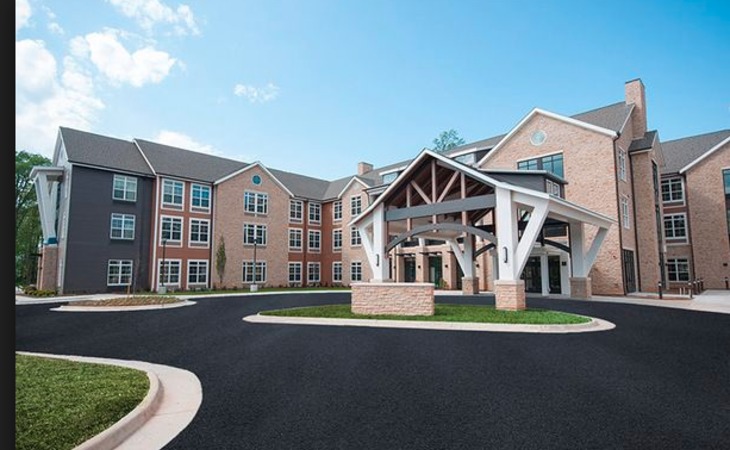Premier Charlotte Memory Care: Enhancing Quality of Life for Elders
Premier Charlotte Memory Care: Enhancing Quality of Life for Elders
Blog Article
Creating a Safe and Supportive Environment: In-Home Memory Care Basics
Developing a protected and nurturing setting for individuals needing in-home memory treatment is paramount to their health and high quality of life. From making sure safety within the living area to employing efficient interaction techniques and executing memory-friendly layout aspects, there are important elements that add to a holistic treatment strategy. By concentrating on developing a supportive community that provides to the unique demands of those with memory impairments, caregivers can dramatically boost the daily experiences of their liked ones.

Safe Living Atmosphere
Developing a hazard-free and protected living setting is critical when supplying in-home memory take care of people with cognitive impairments. Making sure the security of the private with amnesia is vital to avoid crashes and promote a feeling of well-being. One essential facet of developing a secure living atmosphere is to get rid of any kind of prospective threats that can cause slips, journeys, or falls. This includes protecting loosened rugs, making certain ample lights in all locations of the home, and keeping paths free from clutter.
Additionally, making use of technology such as motion sensing units and alarm systems can signal caretakers if the individual wanders or is in distress. By prioritizing security procedures and eliminating potential hazards, caregivers can offer a safe and supportive setting for people with cognitive problems receiving in-home memory care.
Efficient Communication Techniques
Applying customized interaction approaches is vital in promoting significant communications with people with cognitive disabilities in the context of at home memory care. Efficient interaction plays a vital duty in producing a helpful environment that enhances the wellness and lifestyle for individuals with memory issues. When interacting with somebody experiencing cognitive decline, it is essential to make use of easy and clear language, maintain a calmness and positive tone, and offer aesthetic signs to aid understanding.
One trick technique is to exercise energetic listening, revealing empathy, patience, and regard throughout conversations. Non-verbal hints such as face expressions and body movement can additionally aid convey understanding and assistance. Additionally, using reminiscence treatment by utilizing or talking about previous experiences music and art can take advantage of long-term memories, sparking links and promoting engagement.
In addition, integrating normal regimens and regular interaction patterns can give a feeling of knowledge and safety and security for individuals with memory disabilities. By carrying out these communication methods, caregivers can develop significant links and advertise a sense of comfort and rely on the in-home memory care setup.
Memory-Friendly Design
Provided the significance of creating a supportive environment for individuals with memory issues with efficient communication techniques, the incorporation of memory-friendly style components in the space comes to be necessary in optimizing their day-to-day experiences and general well-being. Memory-friendly style concentrates on improving safety and security, comfort, and independence for people with cognitive impairments. Basic modifications can make a substantial distinction, such as making use of contrasting shades to improve presence and lower confusion, including clear signage to assist navigation, and minimizing mess to protect against sensory overload.
Incorporating familiar elements from the individual's past, such as favored things or personal pictures, can evoke favorable memories and create a sense of knowledge. In addition, making certain sufficient lighting degrees, mounting grab bars in washrooms, and carrying out non-slip floor covering can help avoid drops and injuries. Creating a calming and relaxing setting with the use of acquainted aromas, soft appearances, and serene noises can also advertise relaxation and reduce agitation. By integrating these memory-friendly more tips here style elements, caretakers can provide a safe and encouraging living area that allows people with memory problems to preserve their self-reliance and lifestyle.
Daily Routine Planning
When establishing a day-to-day regimen for individuals with memory problems, cautious preparation is necessary to sustain their cognitive feature and overall health. Developing an organized routine can help in reducing disorientation, confusion, and anxiety typically experienced by those with memory problems. Begin by incorporating acquainted activities that straighten with the person's interests and preferences. Uniformity in daily routines can supply a complacency and security, assisting in the preservation of cognitive capacities.
It is crucial to enable enough time for every activity, reducing the requirement to rush and avoiding potential frustration. Basic jobs like meal times, personal care, medication management, and workout needs to be integrated into the regimen. site here In addition, including routine durations of remainder and relaxation can prevent fatigue and anxiety. Versatility is key, as some days may need changes based upon the individual's state of mind and energy degrees. Consistently evaluating and adapting the day-to-day timetable will help ensure its performance in advertising a reassuring and favorable setting for people with memory difficulties.
Support System Implementation
Developing a robust network of encouraging individuals plays a pivotal role in boosting the top quality of treatment and wellness for individuals calling for memory support. Member of the family, friends, healthcare experts, and community sources can all contribute to producing a solid assistance system. Interaction amongst these individuals is important to make certain that the demands of the private with memory obstacles are met successfully.
Household members are commonly the key caretakers and form the foundation of the support system. They supply day-to-day treatment, psychological support, and companionship. When needed to stop exhaustion and ensure the best possible treatment for their loved one., it is vital for family participants to seek help and break.
In enhancement to family members assistance, entailing healthcare professionals such as nurses, specialists, and doctors can offer specific treatment and guidance. These specialists can use beneficial insights, medical suggestions, and aid in managing the person's condition.

Conclusion
To conclude, creating a encouraging and risk-free environment for people with memory care demands is necessary for their well-being. By developing a secure living setting, making use of effective communication techniques, incorporating memory-friendly design aspects, preparing day-to-day routines, and implementing a solid support group, caregivers can assist improve the lifestyle for those with amnesia. These vital parts collaborate to produce a nurturing and empowering environment that advertises freedom and improves general lifestyle.
Creating a protected and hazard-free living atmosphere is extremely important go to website when giving at home memory care for people with cognitive disabilities. By focusing on safety and security actions and removing prospective risks, caretakers can give a helpful and safe and secure atmosphere for people with cognitive problems obtaining in-home memory care.
Establishing a durable network of helpful individuals plays a crucial role in improving the top quality of care and wellness for people calling for memory assistance - Charlotte Memory Care. Communication amongst these people is crucial to ensure that the demands of the individual with memory challenges are satisfied efficiently

Report this page